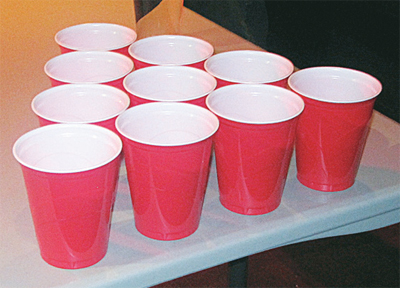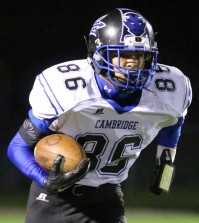- California Assembly OKs highest minimum wage in nation
- S. Korea unveils first graphic cigarette warnings
- US joins with South Korea, Japan in bid to deter North Korea
- LPGA golfer Chun In-gee finally back in action
- S. Korea won’t be top seed in final World Cup qualification round
- US men’s soccer misses 2nd straight Olympics
- US back on track in qualifying with 4-0 win over Guatemala
- High-intensity workout injuries spawn cottage industry
- CDC expands range of Zika mosquitoes into parts of Northeast
- Who knew? ‘The Walking Dead’ is helping families connect
High school drinking culture neglects consequences
 It’s Friday night, and for Jeremy, a high school senior, that means that it’s party time.
It’s Friday night, and for Jeremy, a high school senior, that means that it’s party time.
He’s been going to parties ever since sophomore year, and partying has become a part of his identity. For him, parties are his weekly getaway from the stresses of reality, as he can catch up with friends, make new friends, and forget about school.
Most importantly however, Jeremy can drink at parties. He loves drinking; ever since that first party in sophomore year, he’s developed a love for alcohol, and getting drunk is one of the top reasons that partying is important.
Unfortunately, Jeremy’s story is not unique to him. Underage drinking affects nearly a quarter of teens between the ages of 12 and 20, according to a 2012 report from the Centers for Disease Control and Prevention. Slotted within that demographic of teens as a junior in high school, I see the effects of this first hand: many of my friends now make up part of that percentage, and I find it’s easy to convince myself that underage drinking is the norm in high school.
That’s the saddening part. The ever-persistent high school party culture has ingrained in teens the idea that “everybody does it.” Consequently, in no way is it shocking when one hears that “so-and-so got drunk last night.”
But while this is “okay” on the moral compasses of high school students, teens seem to neglect the health consequences involved with alcohol consumption, especially at such a young age. Teens are especially prone to health concerns because parties are usually associated with binge drinking. These concerns cover all bases, ranging from alcohol-related accidents (driving under the influence, unplanned sexual activity) to long-term effects.
These long-term effects include high-blood pressure, stroke, liver disease, nerve damage, ulcers, alcohol dependence, and malnutrition. Also, the developing brain is only negatively affected by the consumption of alcohol.
These serious risks are dismissed by teens as effects that only afflict older people, but doctors report that the habits that eventually lead to those unwanted consequences start now.
Whereas underage drinking will remain an issue amongst high school students, teens must start to recognize that it has its consequences.
 |
Min Jae Kang West Ranch High School 11th Grade |

















kelly
November 27, 2017 at 12:40 PM
yes..I like the basic concepts behind Second Life but it seems incredibly outdated and when I played it was intensely non-intuitive / user friendly to an extent that made EVE look like a game for toddlers. thanks from
togel online